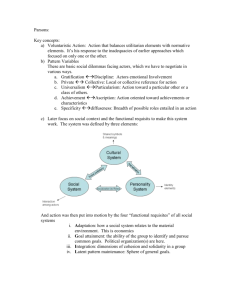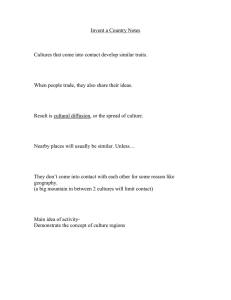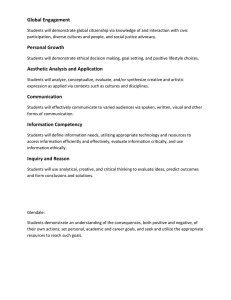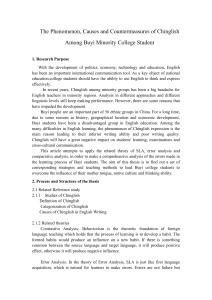Socialculture Factors By Lisa Cheng Introducing second language acquisition
advertisement
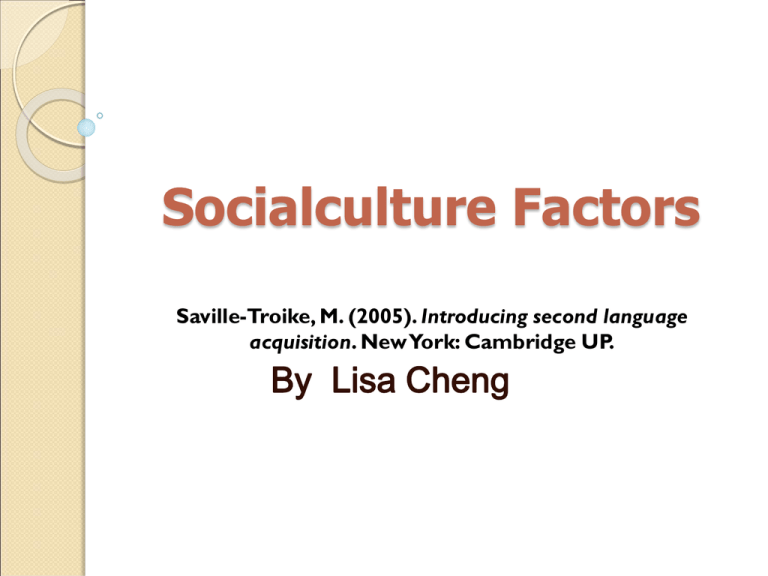
Socialculture Factors Saville-Troike, M. (2005). Introducing second language acquisition. New York: Cambridge UP. By Lisa Cheng Definition of Culture Dynamic System of rules System of rules Groups and units Survival Attitudes/Values/Believes/Norms/behaviors Share by a group Definition Of Cultures Harbored differently by each specific units Communicated across generations relatively stable Potential to change across time By Matsumoto( Brown P189) Ecumenical Approach Culture that is viewing cultures not as oppositional or mutually exclusives hues and, but rather somewhat as hues and colors covering a wide spectrum by Atkinson (1999) We should neither teach received views of cultures nor place our profession in the quick- sands of moral relativity by Sparrow(2000) Stereotypes or Generalizations The bias of our own culture-bound Worldview/Weltanschauung African Africans Europeans Spanish Culture Shock Stage 1: Excitement and euphoria Stage 2: Culture differences Stage 3: Culture stress Stage4: Assimilation or adaptation Anomie Feeling of social uncertainty or dissatisfaction as a significant aspect of the relationship between language learning and attitude toward the foreign culture by Durkheim(1897) Lambert (1967) research supports the idea of Anomie. After the third stage the feeling of anomie decrease and the learner is over the hump in the transition to adaptation. (Brown P196) Social Distance Dominance Permanence Congruence Integration Cohesiveness Social Distance William Acton ◦ Perceived social distance ◦ PDAQ (Professional Difference in Attitude Questionnaire) ◦ Support the theory of Lambert (1967) Brown’s Optimal Distance Model (1980) -Fossilized forms of language Geert Hofstede Individualism Uncertainty avoidance Conceptual Categories Masculinity Power distance World Englishes Inner(the US/UK) Outer(India/Singapore) Expanded World Englishes EIL(English as an International Language) ESL(English as a Second Foreign Language) EFL( English as a foreign Language) NEST(Native English–speaking teacher) Linguistic Imperialism Framing George Lakoff (2004) The importance of language and verbal labels in shaping the way people think Ex: Political rhetoric is carefully framed to invoke positive imagines and feelings. Carmichael / Hogan/ Walter Questions What is Singlish or Chinglish? What do you think about the policy “English Only”? Have you ever gone through any culture shocks? Please tell us more.
